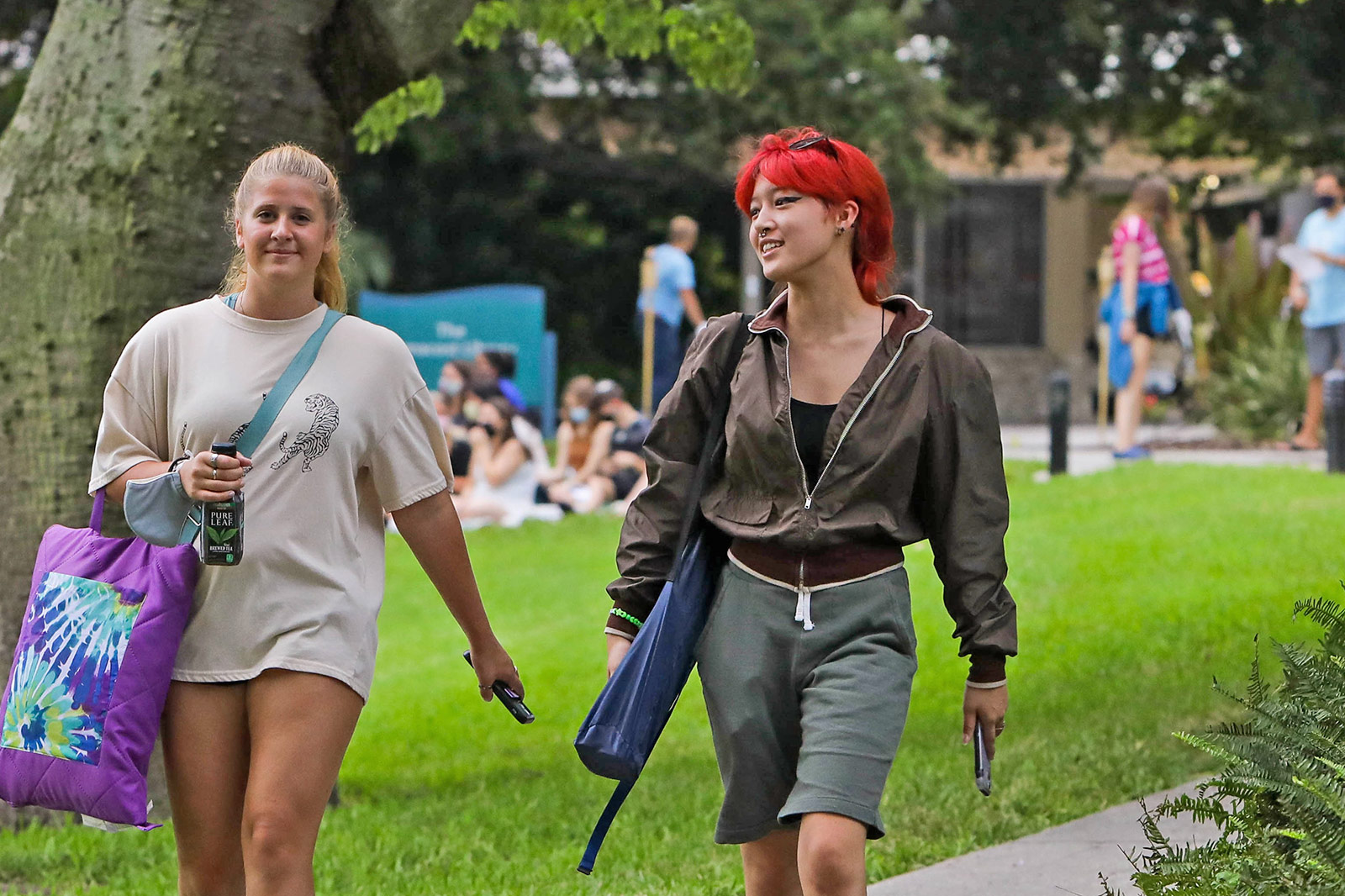
The strategic plan builds on what is unique about the Eckerd experience for students, faculty and staff. Photo: Lisa Presnail
The Eckerd College Board of Trustees unanimously adopted a proposed five-year strategic plan, “Onward: Strategy in Action 2021–2026,” during an Oct. 15 session of its fall meeting.
“Onward” is the culmination of a year of committee work that began after President Damián Fernández, Ph.D., joined the institution in July 2020. Fernández spent his first three months talking to more than 2,000 constituents and hosting 17 listening sessions, offering a feedback survey, and opening up dialogue through different forums to gather information for the October 2020 President’s Report to the Community—the basis of the strategic plan.
“The Board of Trustees has approved our strategic plan, which focuses on problem-centered learning and place-based education where we are learning by doing with purpose,” Fernández says. “And that purpose is to make the world a better place. That’s hard work, but it’s also joyful work.”
Fernández tapped Professor of Physics Anne Cox, Ph.D., and Creative Arts Collegium Chair and Professor of Art History David Gliem, Ph.D., to serve with him as the Strategic Plan Steering Committee to begin the work crafting the plan based on four pillars identified in the President’s Report—I. Eckerd at the Edges: Innovation in the Liberal Arts for Our Times; II. The City as Classroom, the Campus as Laboratory; III. Inclusive Excellence: Diversity, Equity, Inclusion, Belonging (DEIB); and IV. A Sustainable Future: Pursuing Resilience.
But first they began with defining what it meant to Eckerdize.
“Eckerdizing helped the community understand what we value, our strengths and weaknesses, and what our aspirations are. Every objective and initiative included in the plan was weighed against this common understanding,” Cox says. “It helped us focus on what is unique about the Eckerd experience for students, faculty and staff. That then allowed us to capitalize on our strengths, building on them as a foundation for the plan.”
Each pillar was assigned a working group made up of faculty, staff and students who worked for months developing plans to be reviewed by the full Strategic Planning Committee: Vice President for Student Life and Dean of Students James Annarelli; Associate Professor of Political Science Michael Burch; ancient studies junior Maice Clanton ’23; Assistant Professor of Anthropology Jessie Fly; Vice President for Academic Affairs and Dean of faculty Suzan Harrison; Assistant Vice President for Communications Robbyn Hopewell; Assistant Professor of Marine Science Cory Krediet; Chair of the Letters Collegium, Professor of Religious Studies and Director of the Center for Spiritual Life Davina Lopez; Associate Vice President for Advancement Justine Sanford; Vice President for Enrollment Management and Dean of Admission and Financial Aid John Sullivan; and Professor of Theatre Jessica Thonen.
The plan was designed to address not only the College’s aspirations but the real issues of a declining college-age population, national demographic changes and the flawed societal devaluing of the liberal arts.
“There are many initiatives in the plan that address these concerns,” Gliem says. “The Distinctive Program, the St. Pete Center and minoring in a problem, for instance, will help us make the case for the value of a liberal arts education to prospective students and their families by showing the liberal arts in action and highlighting our commitment to student success through an intentional and scaffolded set of common experiences and opportunities that unfolds over the four-year trajectory.”
With a draft of the plan in place, more than 10 community meetings had been held to allow input from across campus before bringing a final draft before the Board of Trustees this month.
After answering trustee questions about specificity, practical applications and continued student engagement, the adoption of the plan was put to a vote where it was unanimously adopted as the College’s working document for the next five years.
“This is a great five-year document,” Trustee Sue McDermott ’89 said, “but I can’t wait to start talking about the years beyond that.”












